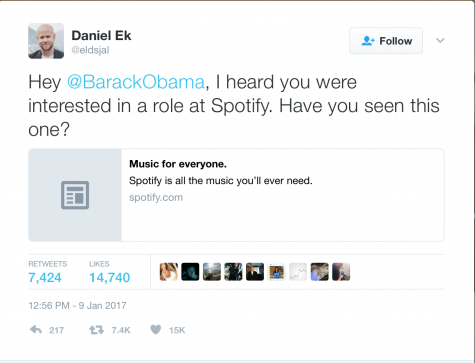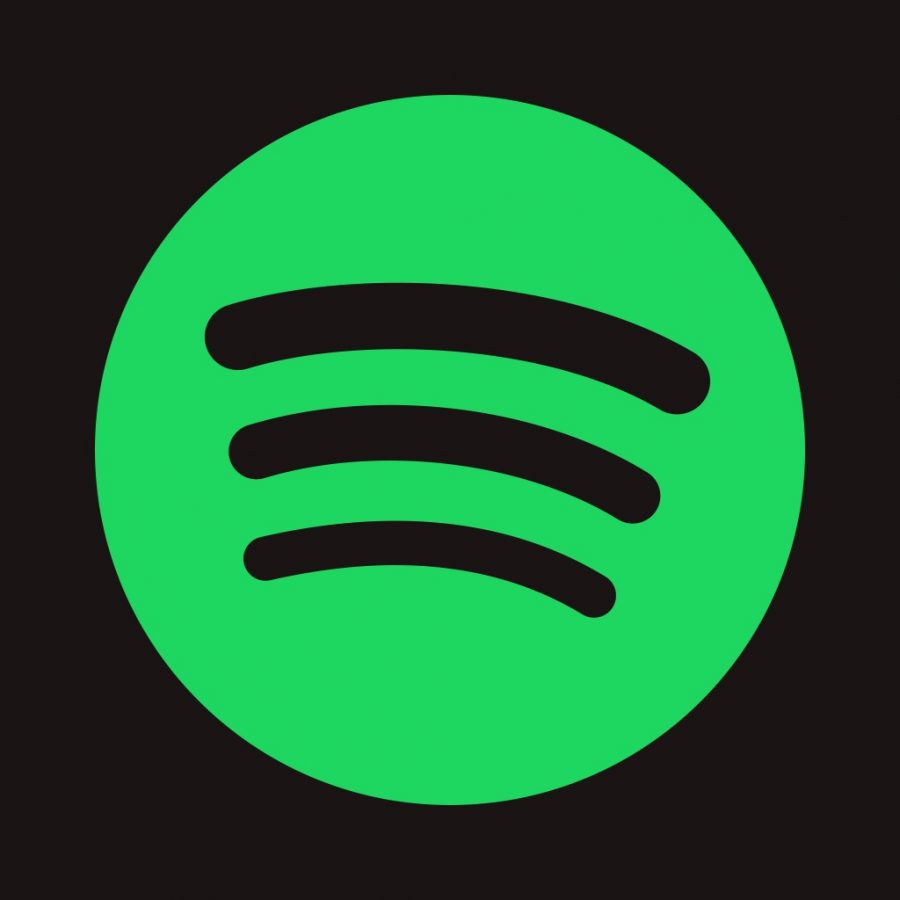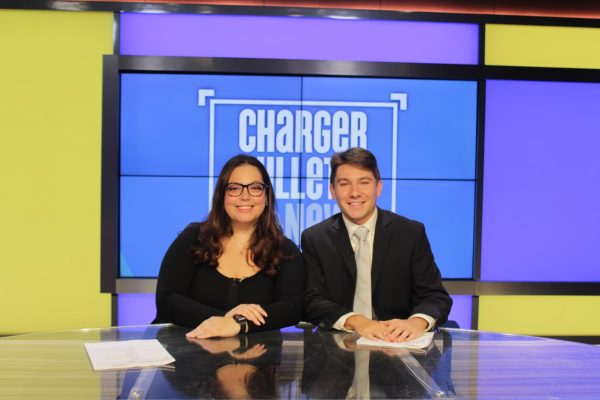Spotify vs. Politics
The transferal of power between Barack Obama and president Donald Trump elicited a wide range of reactions from the public. Civilians and businesses alike expressed a mix of disdain and support to the new POTUS via tweets, public statements, and more. Businesses are being criticized for publicly stating their political beliefs: boycotts are being called against large corporations and retailers such as the Starbucks chain for denouncing Trump’s immigration ban; Uber was accused of attempting to profit from political protests by undercutting driver profits during protests at JFK and other airports; the founder of L.L. Bean’s granddaughter, Linda Bean, came under fire for donating to Trump’s campaign.
Spotify, a Swedish music streaming service, has had an ongoing relationship with former president Obama since he held office. The president openly shared his love of music with summer playlists, giving the world insight into his everyday life and who he is inspired by. In discussion with the New York Times, Rob Sheffield, music columnist for Rolling Stone, described Obama’s picks as “a list of someone who, if they were a full-time music lover or a full-time music archivist, would be an extremely good playlist.” Eclectic choices ranging from Frank Ocean to Frank Sinatra put the president on Spotify’s radar.
Obama’s tasteful song choices, combined with his policies, made Obama a Spotify sweetheart. Sweden’s more liberal social leanings align with Obama’s past contributions, supporting initiatives of diversity and acceptance of all races and sexualities.

When the Obamas were preparing to leave the White House, Spotify went viral for a unique job posting: Spotify’s chief executive, Daniel Ek, tweeted a link to the president with a position titled “President of Playlists” called for special qualifications including “at least eight years running a highly-regarded nation,” “excellent work ethic, a friendly and warm attitude,” “experience in programming playlists at a federal level,” and a Nobel Peace Prize.
In 2016, Spotify debuted a video series featuring political discussions and commentary from artists. Spotify partnered with Mic, a millennial-targeting media company, and HeadCount.org, an organization that collaborates with musicians to promote widespread participation in democracy. Eight cities around the United States were also selected for Spotify events which are geared towards the younger generation to spread cultural awareness and discussion of social issues. Its concept was seemingly neutral, but critics claimed that it was left-leaning.
Spotify caught the Internet’s attention again last week. In response to Trump’s travel ban, a playlist called “The Refugee Playlist” was posted under the company’s official profile. This playlist features 20 songs, celebrating artists that were once refugees themselves and their contributions to the music industry. Artists included M.I.A., who escaped from violence in Sri Lanka when she was 9 years old and Rita Ora, who fled Kosovo and later found refuge in the U.K.
Spotify has been criticized for these clear political affiliations. Many believe that it is not their place to back any candidates, while others believe that business entities have their own freedom of speech. This raises an important question for the company: Will these political affiliations affect their business?
Spotify and its two major competitors, Apple Music and Pandora Radio, dominate the music streaming business. Each service offers its own methods of playlist curation and customization to its users, but Spotify is the most versatile: its most unique offering is its user profiles, from which users can share playlists, follow their friends, and collaboratively create playlists with other users. Spotify is also the most social-media friendly platform, providing users the most social media sharing options and including a messaging feature so that users can share songs with their friends.
In a world of communication powered by hashtags, it is doubtful that Spotify will see any impact on their streams. Calls for boycotts of businesses in the past often do not make major impacts. As a dominant force in the streaming world, and in the music industry as a whole, Spotify will continue to provide a platform for those who want representation.

Meghan is a sophomore pursuing two degrees in Marketing and Business Management. She is a member and Alumnae Committee Chair of Phi Sigma Sigma at the...











